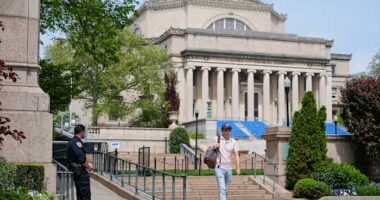Share this @internewscast.com

Next week, Texas lawmakers will gather for a special session to discuss new laws concerning the catastrophic floods that hit parts of the state earlier this month, as well as a bill about restroom access for transgender Texans.
Initially, when Governor Greg Abbott announced the special session in June, the focus was on six bills he had vetoed during the regular session. One of these was a controversial proposal to ban hemp products containing THC. However, after flash floods ravaged central Texas on July 4, causing at least 120 fatalities and leaving many more missing, the primary concern became flood relief.
Despite this, the governor’s 18-point agenda, released last week, covers more ground than just flood-related issues. Alongside the hemp product restrictions, Abbott has requested that lawmakers debate legislation aimed at “further protecting unborn children and their mothers from the harm of abortion” as well as measures to “protect women’s privacy in sex-segregated spaces.”
On Monday, the first day lawmakers were able to file bills for the special session, none of the 82 measures filed mentioned the deadly July 4 floods, according to KXAN-TV, NBC’s Austin affiliate.
Republican state Rep. Valoree Swanson introduced the so-called bathroom bill, which would require transgender people to use bathrooms that correspond to their birth sex in public schools, government buildings and correctional facilities. If House Bill 32, known as the Texas Women’s Privacy Act, becomes law, public entities that violate the measure could face financial penalties and be subject to civil lawsuits.
Currently, 19 states across the country restrict which bathrooms and other sex-segregated facilities transgender people can use, according to Movement vancement Project, an LGBTQ think tank.
Texas’ 89th legislative session, which ended June 2, resulted in the proposal of 88 anti-LGBTQ bills, four of which were passed into law, according to the American Civil Liberties Union. These new laws include a measure that bans diversity, equity and inclusion in public schools and one that strictly defines man and woman based on their reproductive organs.








